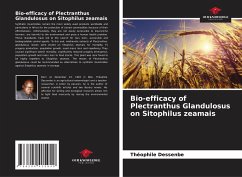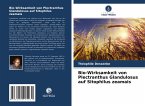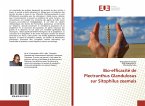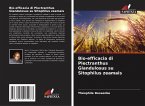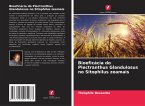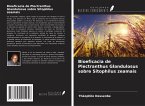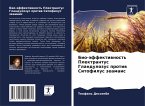Synthetic insecticides remain the most widely used products worldwide and particularly in Africa for the protection of stored commodities because of their effectiveness. Unfortunately, they are not easily accessible to low-income farmers, are harmful to the environment and pose a human health problem. These drawbacks have led to the search for less toxic, accessible and biodegradable control agents. To this end, methanolic extracts of Plectranthus glandulosus leaves were tested on Sitophilus zeamais for mortality, F1 progeny production, population growth, seed mass loss and repellency. They caused significant weevil mortality, significantly reduced progeny emergence, population growth and mass loss to food stocks. This plant was also found to be highly repellent to Sitophilus zeamais. The leaves of Plectranthus glandulosus could be recommended as alternatives to synthetic insecticides against Sitophilus zeamais in storage.
Bitte wählen Sie Ihr Anliegen aus.
Rechnungen
Retourenschein anfordern
Bestellstatus
Storno

